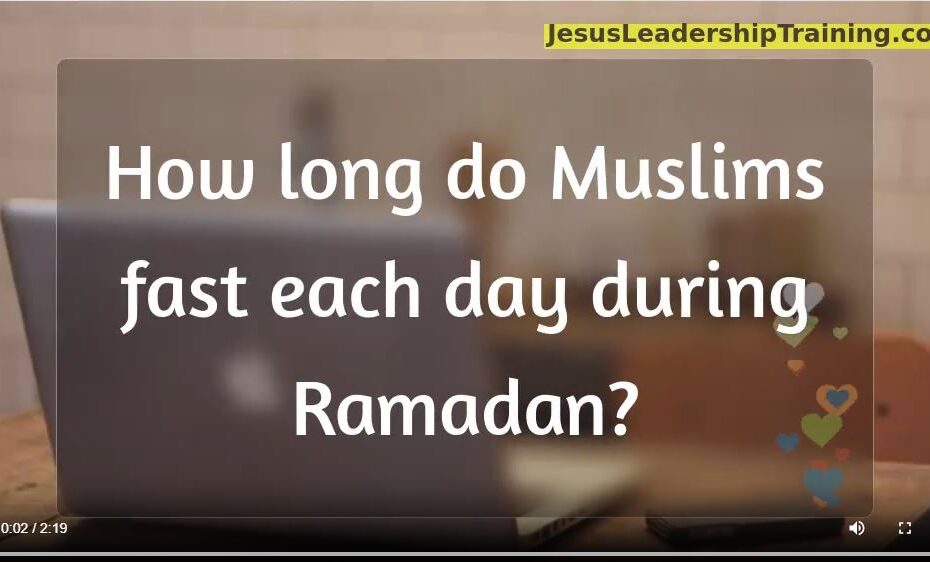During Ramadan, Muslims fast from sunrise to sunset each day. This fasting means they do not eat food, drink water, or partake in other activities like smoking from the early morning (called Suhoor, the meal before dawn) until the evening (called Iftar, the meal after sunset). The exact hours of fasting can vary depending on where people live because sunrise and sunset times change based on location.
Bible Verses:
While the Bible does not specifically mention Ramadan, it does talk about fasting. For example, in the Book of Esther, it says, “Go, gather together all the Jews who are in Susa, and fast for me. Do not eat or drink for three days, night or day. I and my maids will fast as you do” (Esther 4:16). This shows that fasting has been used by people in the Bible to prepare for important events or to show devotion to God.
Examples:
- Esther’s Fast: Esther asked her people to fast for three days before she spoke to the king, which was a big risk.
- Jesus’ Fast: In the New Testament, Jesus fasted for 40 days and nights in the desert to prepare for His ministry (Matthew 4:1-2).
- Daniel’s Fast: Daniel chose not to eat the king’s rich food and wine as a way to stay pure and honor God (Daniel 1:8-16).
Three Main Takeaways:
- Learning self-control: Just like avoiding snacks before dinner, fasting helps Muslims practice controlling their actions and desires.
- Feeling empathy: Fasting helps Muslims understand what it feels like to be hungry, which helps them feel more sympathy for people who are poor and don’t have enough food.
- Coming together: When the fast ends each day, families and friends often gather to eat together, which helps them bond and share their experiences.


